Filter by
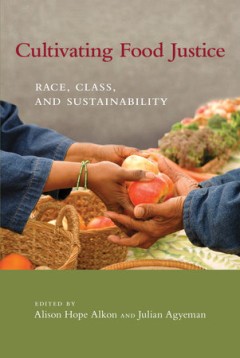
Cultivating Food Justice: Race, Class, and Sustainability
Documents how racial and social inequalities are built into our food system, and how communities are creating environmentally sustainable and socially just alternatives.OCLC-licensed vendor bibliographic record.
- Edition
- -
- ISBN/ISSN
- 9780262300216
- Collation
- 1 online resource (xiv, 389 pages).
- Series Title
- -
- Call Number
- -
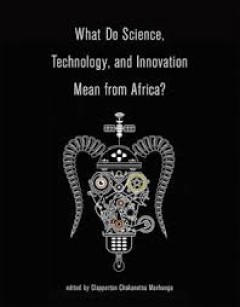
What do science technology and innovation mean from Africa
Clapperton Mavhunga's collection of essays about science, technology, and innovation (STI) from an African perspective opens with the idea, "Things do not (always) mean the same from everywhere; when we insist that only?our? meaning is the meaning, we silence other people?s meanings." Mavhunga and his contributors argue that our contemporary definitions of STI are those of countries and culture…
- Edition
- -
- ISBN/ISSN
- 9780262342322
- Collation
- 1 online resource (xiv, 241 pages) :illustrations, maps
- Series Title
- -
- Call Number
- -
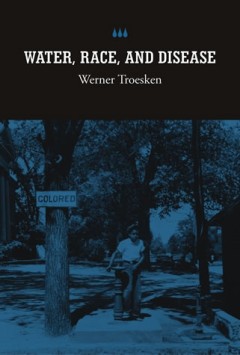
Water, Race, and Disease
A qualitative and quantitative analysis of the effect of public water and sewer systems on African American life expectancy in the Jim Crow era.Why, at the peak of the Jim Crow era early in the twentieth century, did life expectancy for African Americans rise dramatically? And why, when public officials were denying African Americans access to many other public services, did public water and se…
- Edition
- -
- ISBN/ISSN
- 9780262285186
- Collation
- 1 online resource (xvii, 251 pages) :illustrations.
- Series Title
- -
- Call Number
- -
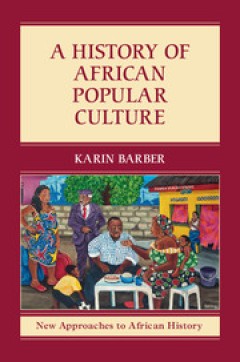
A History of African Popular Culture
Popular culture in Africa is the product of everyday life: the unofficial, the non-canonical. And it is the dynamism of this culture that makes Africa what it is. In this book, Karin Barber offers a journey through the history of music, theatre, fiction, song, dance, poetry, and film from the seventeenth century to the present day. From satires created by those living in West African coastal to…
- Edition
- -
- ISBN/ISSN
- 9781139061766
- Collation
- -
- Series Title
- New Approaches to African History
- Call Number
- -
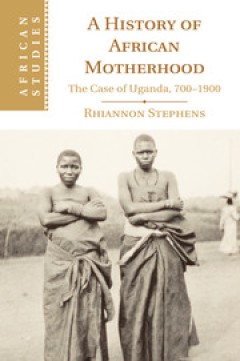
A History of African Motherhood The Case of Uganda, 700–1900
This history of African motherhood over the longue durée demonstrates that it was, ideologically and practically, central to social, economic, cultural and political life. The book explores how people in the North Nyanzan societies of Uganda used an ideology of motherhood to shape their communities. More than biology, motherhood created essential social and political connections that cut acros…
- Edition
- -
- ISBN/ISSN
- 9781139344333
- Collation
- -
- Series Title
- African Studies
- Call Number
- -

An anthology of Blackness :the state of Black design
"Shows why the design field has consistently failed to attract Black professionals, how Eurocentric hegemony impacts Black designers & how to create an antiracist, pro-Black design industry instead"--OCLC-licensed vendor bibliographic record.
- Edition
- -
- ISBN/ISSN
- 9780262377249
- Collation
- 1 online resource
- Series Title
- -
- Call Number
- -

Waiting to inhale :cannabis legalization and the fight for racial justice
"Tells the stories of those who suffered during the worst social and political failure in the continent's history-the War on Drugs-and what we can do to right the wrongs of the past"--OCLC-licensed vendor bibliographic record.
- Edition
- -
- ISBN/ISSN
- 9780262373128
- Collation
- 1 online resource
- Series Title
- -
- Call Number
- -

Repairing play :a Black phenomenology
"Repairing Play tries to wrest the narrative of play away from white, European notions that rely primarily on pleasure by including different connotations of play that do not rely on the access to the conditions of leisure"--OCLC-licensed vendor bibliographic record.
- Edition
- -
- ISBN/ISSN
- 9780262373883
- Collation
- 1 online resource.
- Series Title
- -
- Call Number
- -

Educating for the anthropocene :schooling and activism in the face of slow vi…
"Based on a multi-sited ethnography among schools and activist groups in India and South Africa, this study offers an exploration of education practices in the context of impoverished, marginal communities where environmental crises intersect with colonial and racist histories and unsustainable presents"--OCLC-licensed vendor bibliographic record.
- Edition
- -
- ISBN/ISSN
- 0262370727
- Collation
- 1 online resource.
- Series Title
- -
- Call Number
- -

Of one blood :or, the hidden self
"Reuel, an African American man passing as white so that he can attend Harvard Medical School, is drawn into a fantastical adventure when he revives a woman's life through mesmerism"--OCLC-licensed vendor bibliographic record.
- Edition
- -
- ISBN/ISSN
- 9780262371131
- Collation
- 1 online resource.
- Series Title
- -
- Call Number
- -
 Computer Science, Information & General Works
Computer Science, Information & General Works  Philosophy & Psychology
Philosophy & Psychology  Religion
Religion  Social Sciences
Social Sciences  Language
Language  Pure Science
Pure Science  Applied Sciences
Applied Sciences  Art & Recreation
Art & Recreation  Literature
Literature  History & Geography
History & Geography